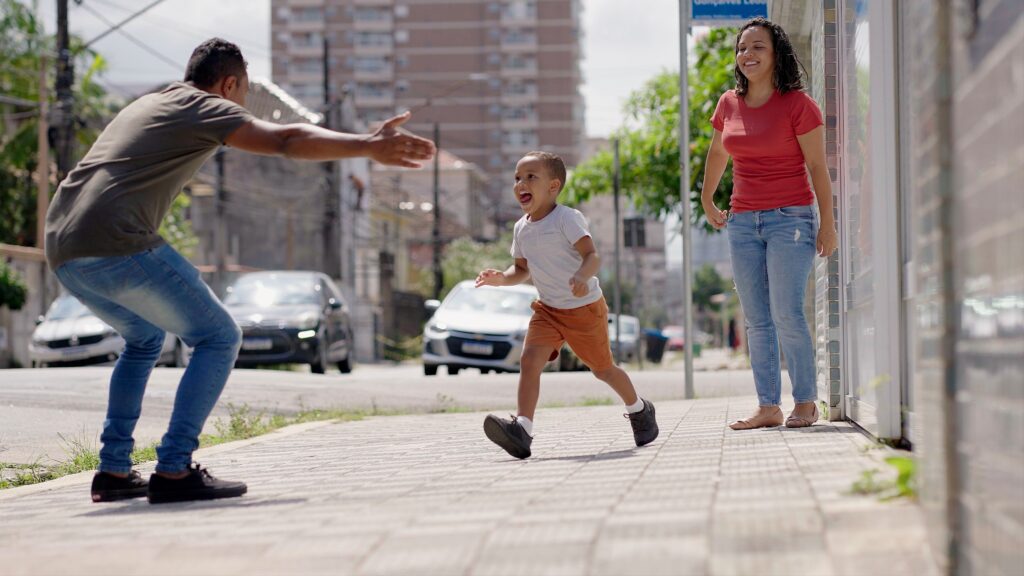Child Custody Agreements That Last: How to Create a Flexible, Future-Focused Parenting Plan
Creating a lasting child custody agreement requires more than just splitting time—it demands flexibility, clear communication, and a focus on your child’s well-being. In this article, you’ll learn how to design a future-focused parenting plan that adapts to life’s changes and reduces conflict through thoughtful, non-adversarial legal support.

When parents separate, one of the most important decisions they will make is how to share parenting time and responsibilities. A good and long-lasting custody agreement will not only address the needs of the children but also be flexible enough to adapt as circumstances change in the future.
Centering Parenting Plans Around Your Child’s Best Interests
In New York, custody decisions are based on what is in the best interest of the child. That remains the guiding principle throughout the process. But the ability of each parent to provide a stable, consistent home also matters. Work schedules, parenting responsibilities, and even energy levels all influence how well a parent can care for their child. When both parents are supported in their roles, the child benefits.
A strong plan helps reduce tension by providing a predictable schedule and a clear understanding of how decisions will be made.
Designing a Custody Agreement That Works for Your Real Life
Ideally, you will want to create a parenting plan that allows for flexibility and accounts for the specific details of your family’s circumstances. Every family has its own schedule, commitments, and challenges. Some children need different levels of support. Some parents may have to move to a more affordable neighborhood. Others may have travel obligations at work that affect their availability.
Because each family is unique, we strongly advise parents to get all the support they need to arrive at custody arrangements outside of the court that meet the needs of each family member. These parents will have the greatest long-term success in their ability to co-parent because they are building a parenting plan that meets their specific circumstances.
Why Mediation and Collaborative Divorce Lead to Better Parenting Agreements
When you use a non-adversarial process like collaborative divorce or divorce mediation, you keep decision-making in your hands. You have more control, more privacy, and more freedom to design an agreement that fits your life. Court processes are limited and often focus only on what is urgent. When you stay out of court, you have the space to focus on what is important: your children and how you want to co-parent moving forward.
Laying the Groundwork for Long-Term Co-Parenting Success
A tailored and well-structured parenting agreement reduces stress for both parents and helps children feel secure. The parents are clear on the schedule, they know how they are supposed to make decisions, and what to do when changes occur. This kind of structure allows both households to function more smoothly.
When children have a clear routine and understand what to expect, they tend to feel more comfortable and secure. Knowing where they will be, who will be with them, and how their parents are working together to support them gives them the freedom to stay focused on school, friendships, and the everyday moments that matter in their lives.
Here are some issues we suggest parents address in their agreements to ensure that they can co-parent with less conflict in the future:
1. Clarifying Parenting Decisions and Financial Responsibilities Upfront
Your custody agreement will not only focus on time-sharing arrangements but will also address how day-to-day and major decisions will be made for the children. Major decisions include those related to education, healthcare, and extracurricular activities. These choices can involve both what the child needs and what each parent can afford. For example, in the future, your child may benefit from private tutoring or orthodonture, but sharing these types of costs may put a substantial financial strain on one of the parents.
Addressing in advance how these types of decisions will be made and how the cost will be shared can help you avoid arguments and allow you to focus on what supports your child’s well-being.
2. Creating Clear Expectations for Co-Parenting Communication
Good parenting agreements include clear expectations for how parents will communicate. If one parent does not respond to a request within an agreed time frame, such as 48 or 72 hours, the other parent may be allowed to move forward. This kind of process reduces day-to-day conflict and gives both parents a shared understanding of how decisions get made.
3. Building Flexibility Into Your Parenting Plan for Life’s Changes
Life changes, and your agreement should make room for that. A good custody plan includes what happens if a parent moves, starts a new job, or begins traveling for work. It can also account for situations like a child changing schools, getting sick, or needing extra support. Looking ahead and including a plan for unexpected events makes it easier to adapt when those changes occur.
Thoughtful Legal Support for Your Family’s Future
At Vacca Family Law Group, we know you’re not just negotiating time on a calendar—you’re building the framework for your child’s future and your own peace of mind. If you’re overwhelmed by the idea of custody or unsure how to protect your child while staying out of court, you’re not alone. Our team helps parents like you design thoughtful, flexible parenting agreements that reflect your values, meet your family’s real-life needs, and reduce conflict—not just now, but for years to come.
Contact us today for your free introductory call, and let’s explore how we can help you move forward with clarity, confidence, and control.
Vacca Family Law Group is located at One Grand Central Place, 60 E. 42nd St., Suite 700, New York, NY 10165.

